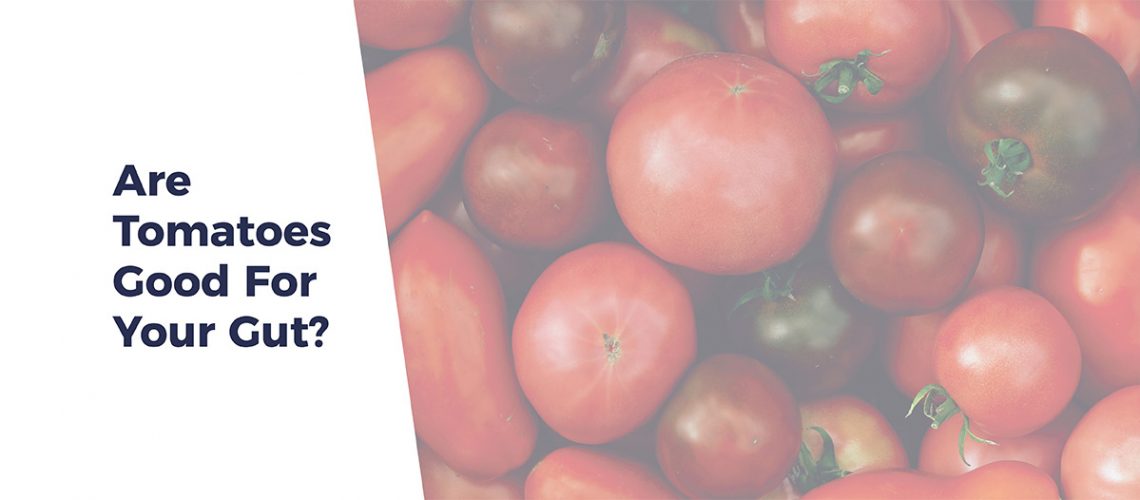Digest This
Click on the topics below to learn how probiotics can improve your digestive health, naturally.

Are Tomatoes Good For Your Gut?
- @drHoberman
- Diet
Are Tomatoes Good For Your Gut?
You’d be surprised by the number of calls we get every time a story pops up on the evening news about the latest probiotic food “discovery.”
Suggestions — whole foods like walnuts — make some sense, but others — beer or kombucha tea — are more challenging and depend on factors largely out of your control.
Recently, tomatoes joined that growing list of foods based on a joint study from a research team at Ohio State and Penn State University specializing in food, crop and animal sciences and the microbiome
Their focus made sense, given that tomatoes make up more than 20 percent of the vegetable intake in the average Western diet and their consumption has been associated with reduced risks for the development of some forms of cancer and cardiovascular disease.
However, there’s always caveats when it comes to evaluating the efficacy of most foods in the laboratory for their microbial benefits, and this case is no different.
How Tomatoes Affect The Gut
To measure the benefits, scientists fed two sets of recently weaned pigs either a standard diet or one that was fine-tuned slightly to include a 10 percent mix of freeze-dried powder made from tomatoes for two weeks.
Gut changes were measured from fecal samples taken before the study started, then seven and 14 days after the tomato-laden diet started. Then, researchers used shotgun metagenomic sequencing, a technique used to sequence genomes to calculate the composition of microbes, to compare those samples.
Overall, the pigs eating a tomato-based diet experienced increased gut microbial diversity, and higher ratios of beneficial bacteria linked to good health outcomes. For example, previous research has linked tomato consumption with a lower risk of cardiovascular disease and some cancers.
Although the results were positive and measurable among animals eating tomatoes, scientists did not learn how or why that change occurred.
That said, pigs have GI tracts that more closely resemble those in humans than mice, which suggests a future trial in humans could happen, says Dr. Jessica Cooperstone, senior study author and an assistant professor at Ohio State.
The Takeaway For Your Health
Still, the real unknown is understanding how foods like tomatoes make an impact on human gut health, says Dr. Cooperstone.
Even taking these positive results into account, the real test for any food is to consume enough of it to have a positive impact on the balance of bacteria in your gut without creating more health problems, like worsening conditions like GERD (gastroesophageal reflux) or migraines.
Very simply, it’s hard to eat enough of a single food to make a gut healthy difference, but a diet rich in dietary fiber can do a lot of good and only takes about 1 ounce of fiber a day to notice a difference.
But there’s more you can do to give your health a gut-friendly boost every day, especially if you have a hard time eating enough fiber.
Taking a multi-strain probiotic formulated with beneficial bacteria from the Lactobacillus and Bifidobacterium families and a proven prebiotic (FOS) contained in EndoMune Advanced Probiotic every day can make a gut-healthy difference in your health.
And, you can save the tomatoes for a salad or your favorite sandwich…
References
There Is An Endomune Probiotic For Every Lifestyle
-
EndoMune Metabolic Rescue
$44.95 -
EndoMune Advanced Probiotic
$42.95 -
EndoMune Companion Pack
$112.93









